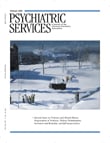The Body Hunters: Testing New Drugs on the World's Poorest Patients
Sonia Shah is an independent journalist whose articles have been published in The Nation , Orion , and elsewhere. In her recent book, The Body Hunters , she offers an account of how clinical trials by large pharmaceutical companies are conducted abroad, quite often in developing third-world countries. She offers numerous examples of just how these research trials are conducted and pays particular attention to the very real risks of this research to the clinical trial population.
Shah's message is essentially that large multinational pharmaceutical companies have "outsourced" their research trials, all in an effort to develop new and expensive medications. Although many here in the United States are distressed by the outsourcing of our jobs overseas, here is an example of how an agenda is shifted to the clinical trial populations of many countries, particularly those in Asia and Africa.
The conditions in many of these countries are often quite poor, with a typically fundamental lack of health care infrastructure and availability. As a result, Shah posits that it has become much easier to have clinical research organizations make clinical trials available to a desperate population because a bad relationship may be better than no relationship. Many ethical issues and concerns are undoubtedly raised by these trials, including the use of placebo in very ill populations, such as those with HIV. How can we justify the use of placebo in people who likely will die? Does exposure of those lucky enough to receive the active drug justify conducting the clinical trial in such a vulnerable population? Does the prospect that a new drug may be effective in a large potentially global population outweigh the risk of such research?
Of course, many other moral and ethical questions are raised. For example, does the potential benefit of novel treatments outweigh the potentially lethal side effects? Next, can informed consent really be obtained in populations that lack medical sophistication? Shah's book raises many important questions; however, she often misses the mark. For example, she decries the development of new medications when there are already numerous compounds available for a given condition. The medical reality is that patients really do respond differently to specific medications and having numerous treatments available really does allow us to treat a larger population.
I trained in the late 1980s. The only medication available for bipolar disorder was lithium, which was helpful for some patients but not for many. The development of numerous mood stabilizers and research on just how different bipolar patients respond to specific treatments has made the treatment of such patients significantly better. Having more than one screwdriver in my toolbox, so to speak, has allowed me to more effectively treat many more patients. Is it ethical or morally justifiable to prevent research that may improve the health outcomes in a large population? Also, let us realize that numerous clinical trials are also conducted in first-world populations, including the United States and Europe. Let us not forget that there are numerous clinical trials occurring in Boston, New York, and Los Angeles. Would the development of novel and different medications be stifled if clinical trials could only be conducted in these populations?
Shah's book raises important issues and is a good conversation starter. As the limitations of health care financing in the United States achieve central prominence, issues of novel medication development will no doubt be positioned front and center. For those interested in clinical trials, medical ethics, and health care delivery this book is a welcome addition.



